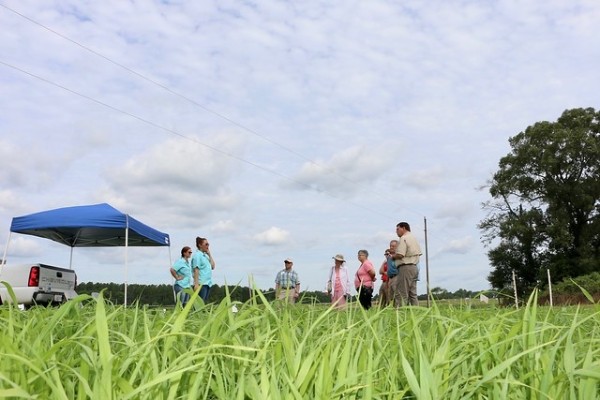Georgia Mountain Research and Education Center
195 Georgia Mountain Experiment Station Rd., Blairsville, GA, 30512
Our Work and Priorities
Georgia Mountain Research & Education Center, or GMREC for short, serves our stakeholders by providing a controlled environment with skilled team members, where we conduct research projects from UGA faculty and students. After repitition and peer review, the results of their findings will make it into extension publications, presented to ANR agents, and shared with commodity groups to improve and enhance agriculture production. This is the foundation of the Land Grant Mission- Education, Research, and Extension. Most of our research areas are off-limits due to the nature of the projects. Scientists will share their work and preliminary results at annual field days.
The Georgia Mountain Research and Education Center lies in the uppermost part of the state in the Blue Ridge Mountains. Established in 1930, the 415-acre station provides research support for agriculture specialists who in turn, provide support to producers in the mountain region, giving them information applicable to the area with its own distinct soil and climatic conditions. The campus resides in USDA Zone 7A, having a shorter 180-day growing season with an average rainfall of 57 inches.
Current research focuses on commodities including apples, grapes, blueberries, field corn, sweet corn, soybeans, fescue, clover, orchard grass, alfalfa, ryegrass, tomatoes, and various ornamentals. The climate is perfect for evaluating cold hardiness for new cultivars that include Alfalfa, Crape Myrtle, Vitex, Abelia, Bermuda, Centipede, and Zoysia turf grasses. Additionally, UGA graduate students often conduct their research at the center. To learn more, check out the Virtual Field Day where you will hear from scientists and the work they do here at GMREC.
Most of the campus is closed to visitors except during designated tours but there are gardens the public can visit. Visitors can check in at the office and then tour the ethnobotanical gardens.
If you need assistance with soil testing, landscape and/or farming decisions, contact your local county agent. Jacob Williams is the UGA Extension Agent for Union & Towns Counties. Union County Extension Office.




